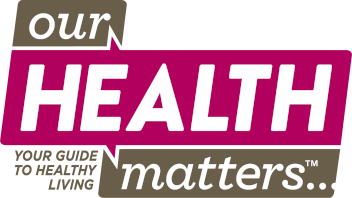Places where you live, work, play, and worship can play a role in your health.
By Corstella Henley, MPH, CHES
Regional Minority Health Consultant, Region VII (MO, IA, NE, and KS)
Office of Minority Health, U.S. Department of Health and Human Services
Health is seen as more than the absence of disease. Some researchers have stated that health is a state of balance between oneself and their social and physical environment (1). Social determinants of health are the social and physical conditions of where you live, work, play, and worship that impact health (2). Social conditions, such as stress of unemployment, lack of education, high crime rates within your neighborhood, and physical conditions, such as insecure housing, air pollution, and limited walkability can all affect your health. These social determinants of health could explain why some Americans are healthier than others, and why a person’s zip code could determine their health outcomes.
In Missouri and Kansas, social and physical conditions such as safe and affordable housing, access to education, public safety, and availability of healthy foods are affecting health outcomes (2). The impact of these conditions are affecting heart disease, diabetes, mental health, and obesity rates within Missouri and Kansas. Geographically, our physical and social environments have high rates of air pollution, violent crimes, physical distress, obesity, and smoking, which are negatively affecting our health. Although the concept of social determinants of health can seem overwhelming, there are local resources working to address these issues.
Agencies working to improve outcomes
The US Department of Health and Human Services, Office of the Assistant Secretary for Health (OASH), Region VII (located in Kansas City, MO) works with regional, state, local, and tribal government, and community and faith-based organizations to identify community health challenges, and promote equitable change throughout the region. Locally, OASH host trainings and meetings in an effort to bring together communities, hear about the health challenges, and discuss resources and next steps. Current efforts include violence prevention, adult immunization, and opioid epidemic. For more information about upcoming trainings and meetings connect with Corstella.henley@hhs.gov.
The Heartland Regional Health Equity Council’s (RHEC) works with communities to address and identify public health needs. The RHEC consists of a diverse group of change makers representing multiple sectors with varying levels of leadership, service and expertise to address social determinants of health. Recently, the Heartland RHEC published the Heart Disease Data Report. This report highlights heart disease disparities within Missouri, Iowa, Kansas, and Nebraska, and includes resources on how to address the issue among minority populations. You can find a copy of this report, and more information about Heartland RHEC on their website: http://region7.npa-rhec.org/.
Places where you live, work, play, and worship does play a role in your health. A healthy community is a strong community, and a strong community is an informed community. Stay informed and get involved.
References:
(1) Sartorius, N. (2006). The Meanings of Health and its Promotion. Croatian Medical Journal, 47(4), 662–664.
(2) “Social Determinants Of Health | Healthy People 2020”. US Department of Health and Human Services, Office of Prevention and Health Promotion. Web. 28 Feb. 2015, www.healthypeople.gov






One Comment
Pingback : Hate Exercise? - KC Our Health Matters